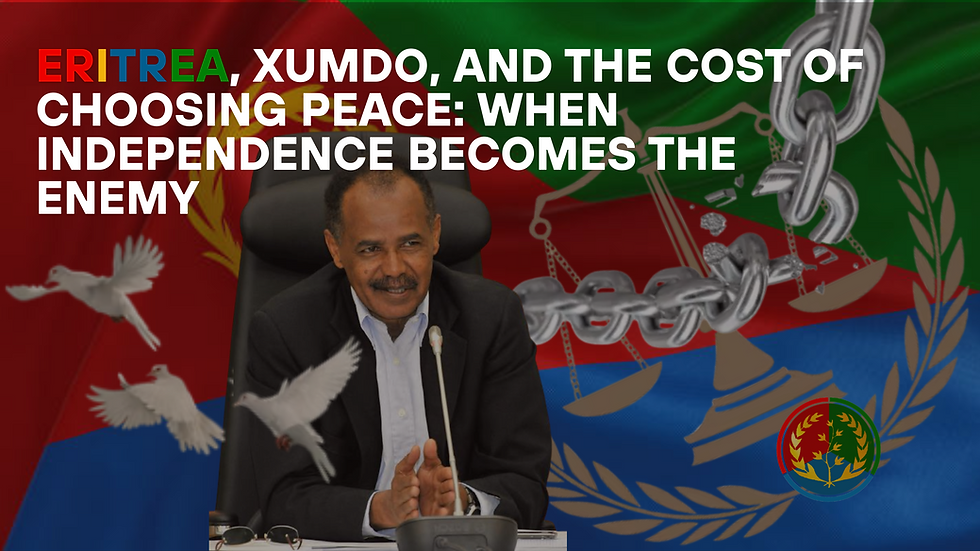
Shadow Alliances: The United States, European Financial Power, and the Rise of Greater Israel
- Nakfa Eritrea
- Jul 26, 2025
- 4 min read
Foundations of an Alliance – A Nation Within a Nation
From the moment the State of Israel was declared in 1948, the United States position?ed itself as its most vocal and powerful ally. But this relationship didn’t arise out of thin air. It was preceded by decades of lobbying, diplomacy, and, arguably, manipulation from transnational interests rooted not in American identity but in European legacy banking institutions.
While American public opinion has often oscillated between isolationism and interventionism, the U.S. foreign policy establishment has remained consistently aligned with Zionist aims in the Middle East. The roots of this alignment extend far beyond political strategy — into the financial and ideological core of institutions shaped by European elites who had long sought to reshape global power centers.
Among these elites, the Rothschild banking dynasty stands out. Their influence in the 19th and early 20th centuries cannot be overstated. The Rothschilds were instrumental in funding early Zionist settlements in Palestine, acquiring land for Jewish pioneers, and shaping what would eventually become Israeli infrastructure. What many fail to recognize is how their networks expanded into American economic and political life well before World War II, subtly seeding transatlantic loyalties that would endure.
The U.S. government's public face may speak of democracy and freedom, but the interests guiding its actions are often far more opaque. Key financial backers, lobbyists, and think tanks guiding American foreign policy have, in many cases, aligned themselves with an agenda that bolsters Israel at the expense of U.S. neutrality in the Middle East.
Deception in Policy – The Illusion of Mutual Benefit
The American public has often been told that the U.S.-Israel relationship is one of mutual interest — that Israel is “the only democracy in the Middle East” and a strategic partner. But the deeper one looks, the more this narrative appears crafted to serve agendas outside of the democratic process.
Take, for instance, the U.S. aid packages to Israel. Since 1948, Israel has received more cumulative foreign aid than any other nation, totaling over $150 billion. Much of this aid is military — funds that often cycle back to U.S. defense contractors — but it also cements Israeli superiority in a region perpetually kept unstable.
Why does the U.S. continue to fund this imbalance? One must consider the role of influence operations such as AIPAC (American Israel Public Affairs Committee), which, while ostensibly American, represents a foreign-first policy. Many AIPAC donors and ideological founders trace their origins not to the American heartland but to elite European circles with vested interests in Israel’s dominance — politically, economically, and spiritually.
The “Greater Israel” concept — an ideological vision promoted by some nationalist and religious Zionists — suggests a territorial expansion from the Nile to the Euphrates. While this remains a fringe aspiration publicly, the strategic destabilization of surrounding countries (Iraq, Syria, Lebanon) eerily aligns with such a goal. Critics argue that U.S. interventions — from the Iraq War to sanctions on Syria — serve not American interests, but those of a regional project backed by powerful lobbies and financiers far removed from the American populace.
Unmasking Power – Who Truly Guides the Empire?
This brings us to a larger, unsettling question: Who truly controls American policy? Is it the voter? The elected official? Or is it an entrenched network of power, inherited from European banking families, that has used institutions like the Federal Reserve, IMF, and World Bank to shape a postwar order favorable to their vision?
The Rothschilds, while often a lightning rod in controversial discourse, undeniably helped shape the financial systems that underpin Western geopolitics. Their involvement in post-Napoleonic Europe, particularly after the Battle of Waterloo, gave them leverage across national borders. By the 20th century, their reach — while more decentralized — had influenced central banking models, wartime financing, and colonial resource extraction. It’s no stretch to suggest that families and networks like theirs played a formative role in the systems that would later fund and support Zionist ambitions.
The U.S. may appear as a sovereign superpower, but many argue it operates as a vessel — steered by those whose loyalties are to international capital, not national wellbeing. These elites are often not “American” in any cultural or nationalistic sense. Their identities are transnational, their motivations intergenerational, and their methods concealed behind institutions that the average citizen cannot penetrate.
Understanding this doesn’t mean embracing conspiracy — it means recognizing the architecture of influence. Those who benefit from perpetual war, resource control, and ideological division are rarely the ones held accountable. And as long as Americans are kept in the dark, the machine continues.
Closing Thoughts
If Americans want to reclaim sovereignty — not just over land but over truth — they must begin asking harder questions about who profits from war, whose vision is being implemented abroad, and what “ally” truly means. The U.S.-Israel relationship, while often portrayed as sacred, deserves scrutiny, especially when the consequences are borne not by financiers in London or New York, but by families in Baghdad, Gaza, and even Detroit.
History rewards those who study power honestly. And power, in this case, may not lie in the White House — but in the boardrooms, vaults, and private dinners of a European legacy that has shaped the modern world in silence.
.png)



Comments